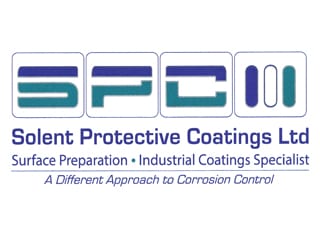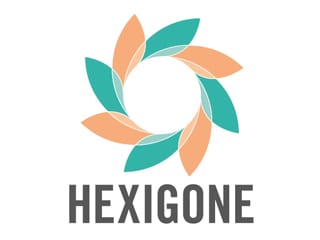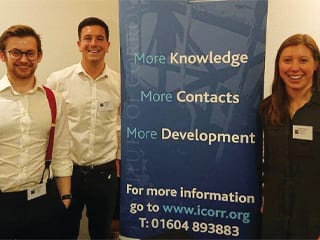
Latest News
Solent Protective Coatings
Solent Protective Coatings are a forward looking company combining the latest innovations, technologies, techniques, equipment and products with excellent experience, and can offer solutions to all aspects of surface preparation, corrosion protection and application of protective coatings both for preservation and presentation.
Their staff have considerable experience in operations undertaken by the company and have established a very good reputation for service and quality. The overall intent of the company philosophy is to create a strong relationship with their customers, professional teams and the supply chain, which is based on trust and co-operation and represents a genuine partnership.
Their key services include abrasive grit blast surface preparation, passive fire protection, thermal spraying, protective coatings application, and UHP water blasting. Their expert staff and partners are available to ensure that your project is full specified and planned with the right people, equipment and materials to deliver the results you require.

Latest News
Hexigone
Hexigone manufacture corrosion inhibitors that are safe, smart and up to ten times more effective than other alternatives. Their vision is to create a more sustainable world through ‘chemically intelligent’ coatings developed in collaboration with industrial partners.
Their technology, Intelli-ion, protects in a completely unique, ‘smart’ way via three modes of electrochemical protection. The active ingredient sits dormant in a micro-reservoir and is triggered ‘on demand’ when corrosion ions are sensed at the coating surface. These are then sequestered into the coating, preventing cathodic disbondment and filiform corrosion. Due to the micro-reservoir system, Intelli-ion is able to offer corrosion protection using chemicals that were previously incompatible with coatings – significantly increasing the lifetime of the end product.
As a new company to the coatings industry, they have already made global connections with over 50 partners formulating with their product, which has three variations (AX1, AX2, AS1) that are suitable for drop-in replacement within primers and solvent borne systems for ferrous and non-ferrous substrates. High performance has been seen across the O&G, ACE, marine, aerospace, automotive refinishing and architectural industries.

Latest News
Forward Protective Coatings Ltd
Forward Protective Coatings Ltd is one of East Midlands foremost industrial coatings applicators, specialising in painting steelwork for most industries. They can apply most paint systems on structural steel and fabrications and also on stainless steel and aluminium items. Operating from a 30,000 square feet facility based in Mansfield, Nottinghamshire, they have a lifting capacity of up to 20 tonnes. As well as applying protective paint systems, they can also apply thermal spray coatings, passive fire protection and powder coatings, and have crews to provide on-site touch up or full paint systems.
FPC pride themselves on providing the highest quality products with a service that is one of the best in the industry, and have experience in providing coatings for the most demanding of industries and are able to tailor inspections and certifications to meet any client requirements.
Latest News
U.R. Evans Award
After careful deliberation the CSD committee nominated Prof R.A. (Bob) Cottis (University of Manchester) as the recipient of the 2020 U.R. Evans Award. This decision has been ratified by the ICorr Council and it is planned that this will be awarded at the 61st Corrosion Science Symposium being held as a standalone meeting at the
University of Southampton in September 2020.
Prof Cottis has been a champion of corrosion education throughout his entire career with seminal contributions within UMIST/Manchester, and activities linked to EFC WP7 Corrosion Education and NACE International. He joined the Corrosion and Protection Centre, UMIST in 1979, initially as a lecturer, then senior lecturer, reader and professor. He was appointed Professor Emeritus in Corrosion Science and Engineering on his retirement in 2011. Nonetheless, he has continued his research into hydrogen embrittlement and electrochemical noise measurements.
He has been active in the development of teaching in the field of corrosion, being responsible for the development of a distance learning approach to the MSc in Corrosion Control Engineering, and Director of the Teaching and Learning Technology Programme (TLTP, funded by the UK higher education funding bodies HEFCE, IIEFCW, SHEFC and DENI) Consortium that developed the Engineering Corrosion (Ecorr) courseware to support corrosion teaching. In 2005 he was awarded the T.J. Hull Award of NACE International, given in recognition of outstanding contribution to NACE in the field
of publications.
Prof Cottis has also contributed to the international development of the subject in several areas. The main focus of his early research was the mechanistic aspects of corrosion fatigue. Both in respect of crack initiation, which is significant primarily for smaller components and where he demonstrated the role of corrosion in assisting the initiation process, and crack growth, where his work showed that larger cracks, such as those found in offshore structures, are relatively unaffected by corrosion and hydrogen entering the steel is a more important factor. In collaborative work he was responsible for the clarification of the interpretation of the results of existing electrochemical techniques and contributed to improvements in the statistical interpretation of pitting corrosion, both of which are of considerable industrial significance. On a more fundamental note, he also developed very efficient algorithms for the modelling of alloy corrosion. Most recently, he has been one of the leaders in the development of a fundamental understanding of the theoretical basis of electrochemical noise measurements, and in the better understanding of the capabilities and limitations of the use of artificial neural network methods for modelling corrosion processes.
As a reminder, the award criteria are; an international reputation and service to the corrosion science community, a contribution to dissemination – publications, professional bodies, patents and IPR, conferences and events. Plus a contribution to industry – especially of an inter-disciplinary nature, corrosion science and technology training, distinctiveness, originality and creativity of research – impact on corrosion discipline, seminal contribution to corrosion science and practice, and a continuing potential contribution to corrosion research. Nominations can be submitted at any time to the CSD chair.
Galloway Award
The Galloway Award is presented annually to a student author of a published paper on a corrosion-related topic. It is named in honour of Jack Galloway, a founder member of the British Association of Corrosion Engineers, a forerunner of the Institute of Corrosion.
The 2019 recipient is Liberato Volpe (University of Manchester) for his paper ‘Replicating PWR Primary Water Conditions in Low Pressure H2-Steam Environment to Study Alloy 600 Oxidation Processes’, which was published in the Journal of the Electrochemical Society (Volume 166, C1-C8, 2019).
The award consists of a certificate and a cheque for £300. Nominations for the 2020 award are now open; candidates should email a pdf copy of a paper published in the last 12 months to the CSD Chair by 4 Sept 2020.

Latest News
With the current energy and medical problems in society “Engineering the new decade” is going to be challenging. Young ICorr joined forces with early career engineers from the IMechE, ICE, IStrutE, IChemE and IET, for a one day event held at 1 Birdcage Walk in London, to take a closer look at how innovation and collaboration across the engineering industry will help solve some of the key challenges. CHAIN 2020 included a series of engaging talks delivered by a range of experts from industry, government and engineering Institutes, each was followed by inquisitive panel discussions. A standout of the day was the interactive workshop focussing on inter-discipline collaboration and its newfound importance in winning contracts for prospective projects. Notably, all of the presentation’s subject matter could all be linked to corrosion, such as fire safety, urban building, cyber security, future energy and engineering in healthcare. The final talk of the day was set to a vote and titled “What will it take to decarburise London?” – a hot topic of the day sparking debate between all disciplines.
It was great to meet engineers working in corrosion across such a wide range of industries at the networking event at the end of the day. Young professionals were also able to find out about the industry specific training courses and local branch talks that ICorr offers, as well and the Young ICorr group.
The next Young ICorr meeting is planned for Thursday the 23rd of April at the University of Leeds, where we are honoured to have a talk from Professor Anne Neville to celebrate corrosion awareness day. Further details will be available through the LinkedIn group, https://www.linkedin.com/groups/8599206//, and we look forward to seeing you then.
As part of the Institute social media campaign, Young ICorr also has a twitter page, https://twitter.com/YIcorr

